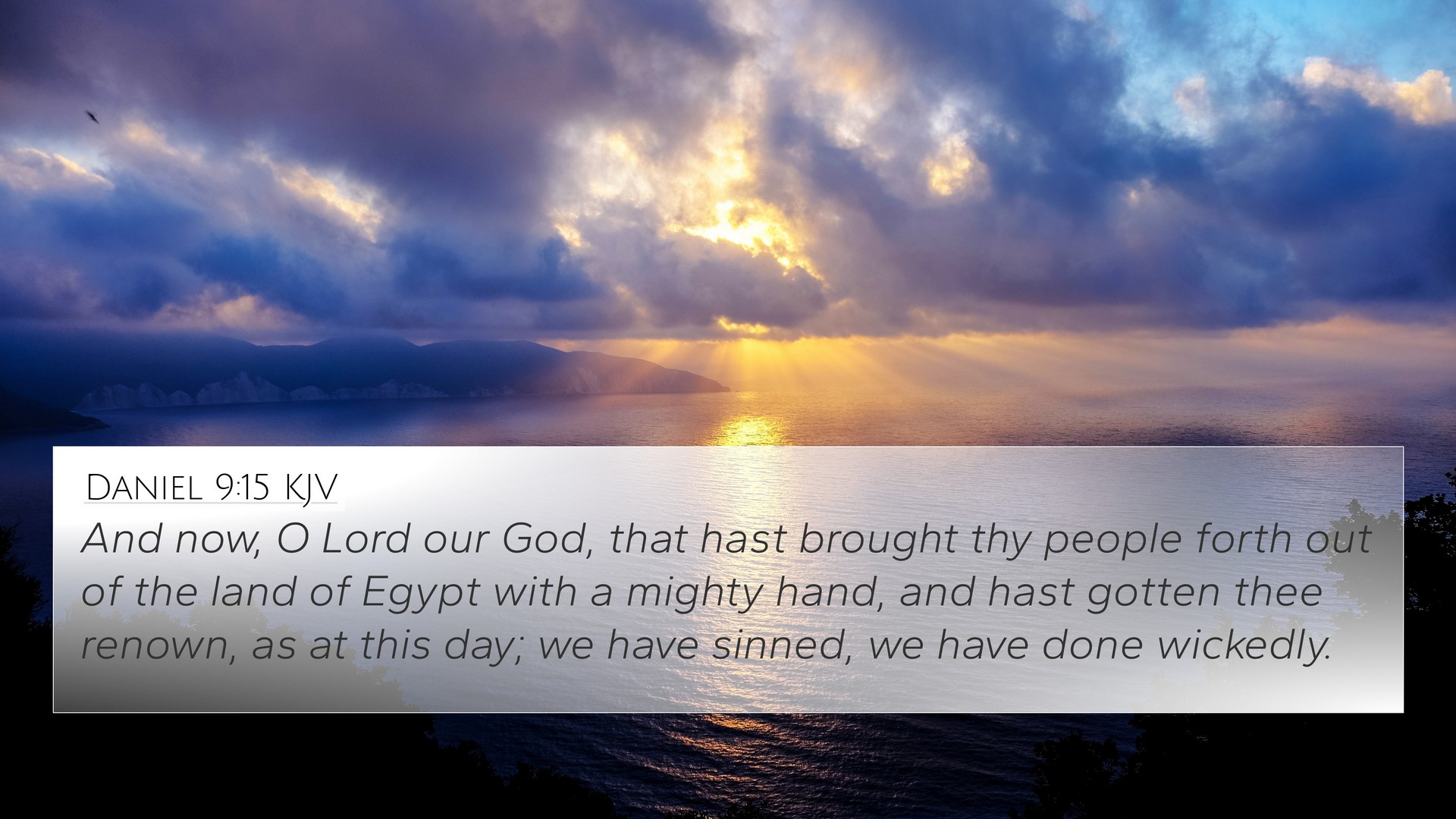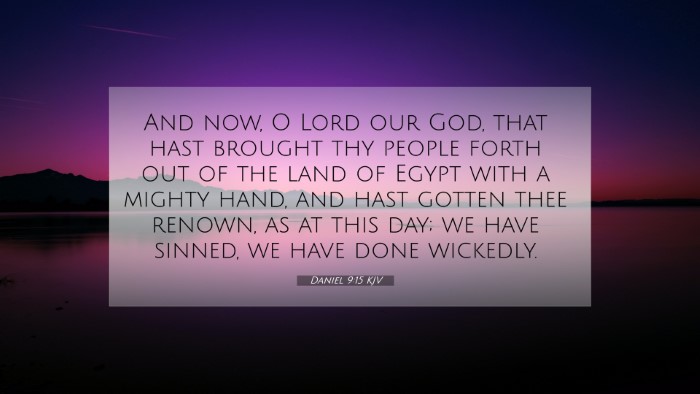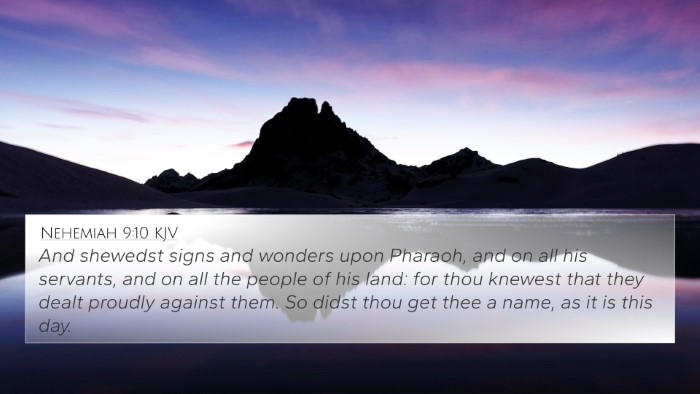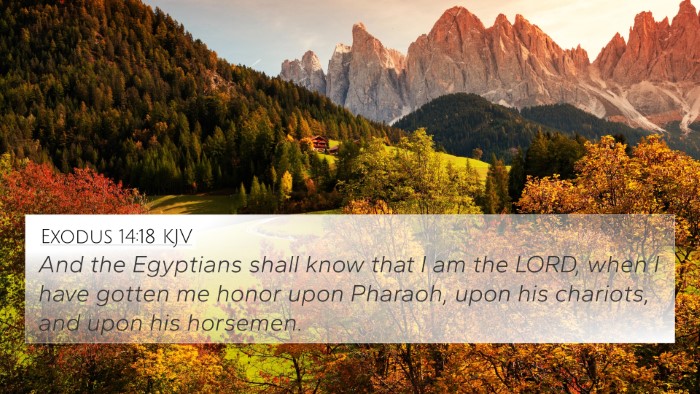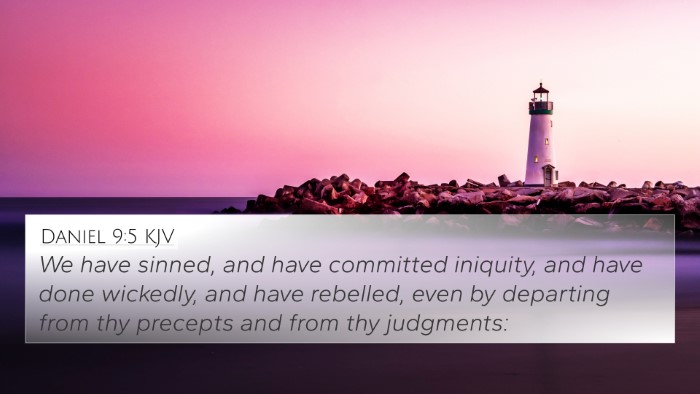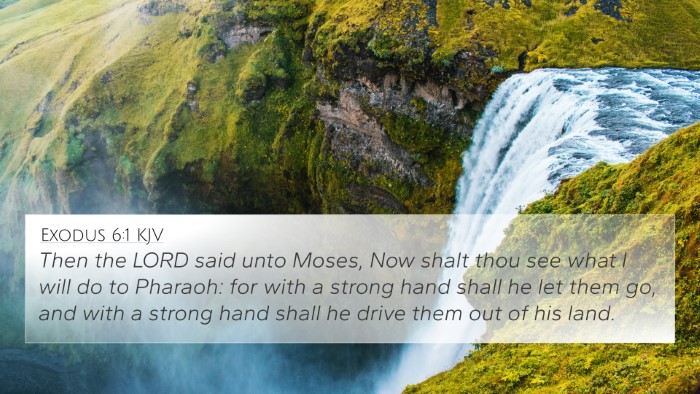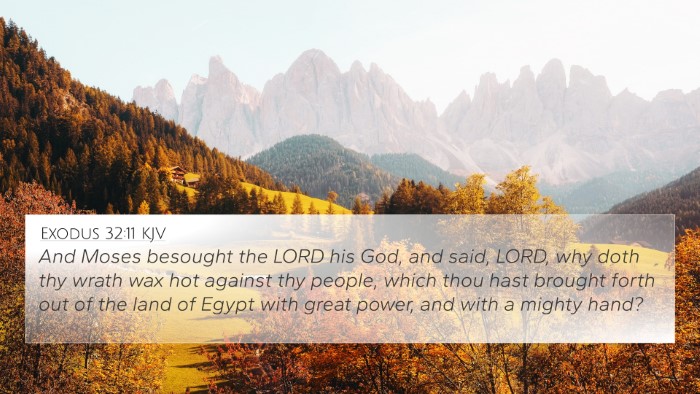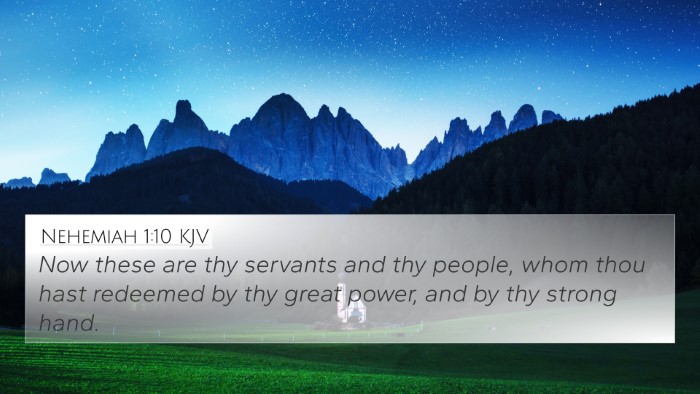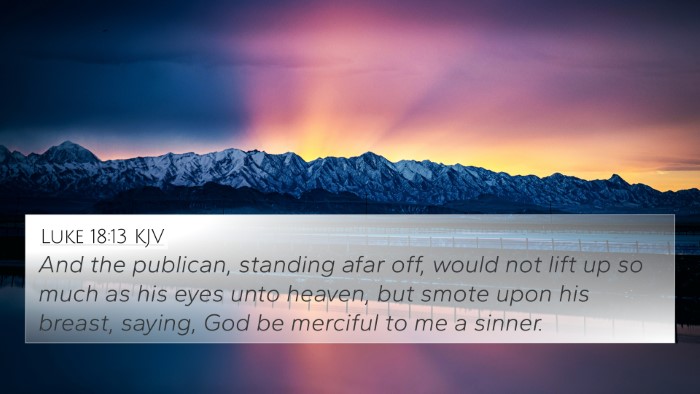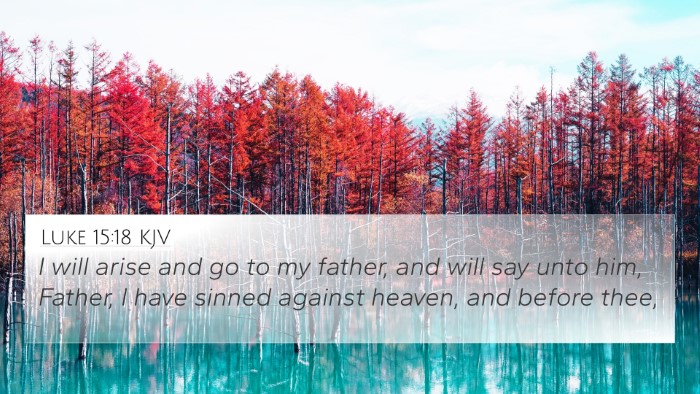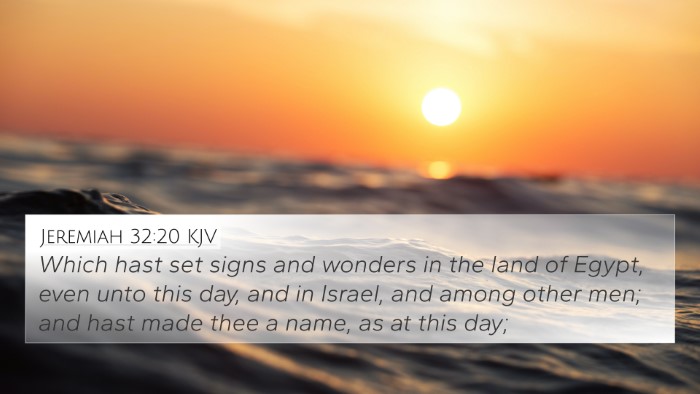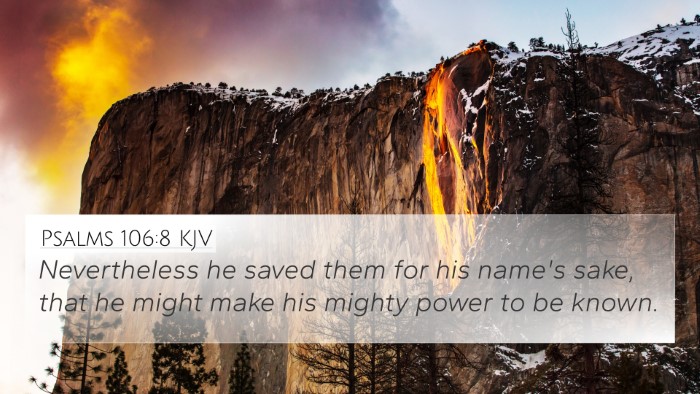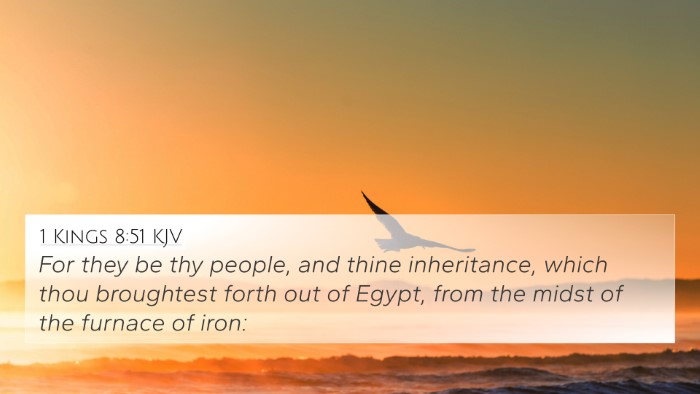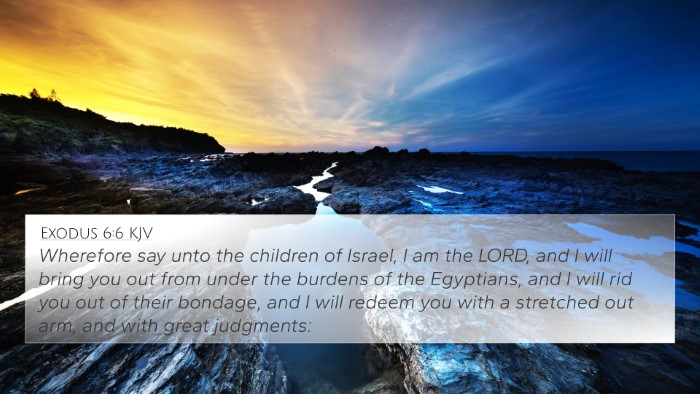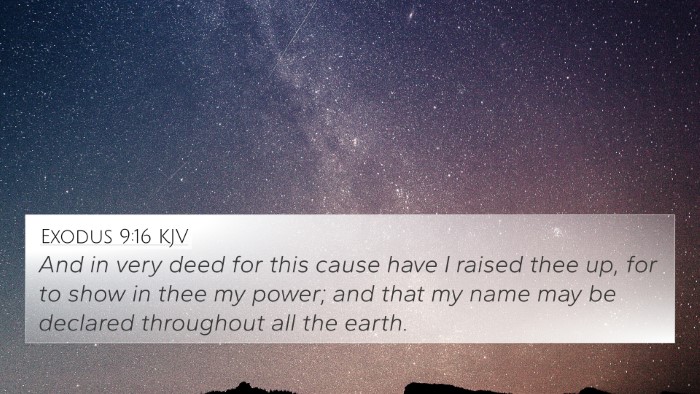Understanding Daniel 9:15
Daniel 9:15 states: "And now, O Lord our God, that brought your people forth out of the land of Egypt with a mighty hand, and hast gotten you renown, as at this day; we have sinned, we have done wickedly." This verse holds profound meaning and serves as a pivotal moment in Daniel's prayer of confession on behalf of the Israelites. Below, we explore this verse through the insights derived from public domain commentaries, illuminating its significance within the broader narrative of Scripture.
Context and Background
The book of Daniel was written during the Babylonian exile, a time when the Israelites were under oppression. Daniel’s prayer in chapter 9 is earnest and reflective, acknowledging both God's great deeds in history—particularly the Exodus—and the sinfulness of Israel. Understanding this verse requires examining both past events and the present circumstances Daniel faced.
Thematic Connections
Here, we explore the major themes from Daniel 9:15 that are echoed throughout Scripture:
- Divine Deliverance: This verse recalls God's deliverance of Israel from Egypt, a central theme in the Old Testament that exemplifies God's might and commitment to His people.
- Confession and Repentance: Daniel's acknowledgment of sin sets a precedent for humility and repentance in approaching God.
- Covenant Relationship: The historical reference to Egypt emphasizes God's covenant with Israel and His expectations for faithfulness.
- God's Renown: The recognition of God’s fame ("hast gotten you renown") ties into the broader theme of God's glory and the call to worship Him alone.
Bible Verse Cross-References
To further understand Daniel 9:15, here are several Bible verses that relate to this passage:
- Exodus 20:2-3: "I am the Lord your God, who brought you out of the land of Egypt, out of the house of bondage. You shall have no other gods before Me." - This command reflects God's deliverance and the call for loyalty.
- Isaiah 43:16: "Thus says the Lord, who makes a way in the sea and a path through the mighty waters." - Emphasizes God's power in delivering Israel.
- Psalms 106:7-8: "Our fathers in Egypt did not understand Your wonders; They did not remember the multitude of Your mercies." - Highlights the tendency to forget God's acts of salvation.
- Nehemiah 1:6-7: Nehemiah's prayer of confession parallels Daniel's, showcasing the communal sin of Israel and the need for restoration.
- 1 John 1:9: "If we confess our sins, He is faithful and just to forgive us our sins and to cleanse us from all unrighteousness." - This New Testament verse reinforces the theme of confession and forgiveness present in Daniel's prayer.
- Jeremiah 14:20: "We acknowledge, O Lord, our wickedness and the iniquity of our fathers..." - Reflects the same spirit of confession and recognition of sin.
- Romans 3:23: "For all have sinned and fall short of the glory of God." - Acknowledges the universal condition of sinfulness that Daniel directly addresses in his confession.
- Ephesians 2:8-9: Illustrates God's grace in bringing deliverance similar to the exodus: "For by grace you have been saved..."
- Matthew 5:15: "Nor do they light a lamp and put it under a basket, but on a lampstand, and it gives light to all who are in the house." - This verse connects to the renown of God as a light for His people.
- Hebrews 11:29-30: "By faith they passed through the Red Sea as by dry land..." - This affirms the faith of those who witnessed God's greatness.
Interpretative Analysis
Daniel employs a collective acknowledgment of sin, illustrating the importance of communal repentance in the life of faith. His reference to the mighty acts of God ('a mighty hand') serves as a reminder of God's faithfulness in the past, which ought to compel visibility of our current failures and the pursuit of restoration.
Practical Applications
This verse and its surrounding context have lasting implications for believers today:
- Encouragement to Confess: Daniel’s example encourages individuals to confess not only personal sins but also the failings of their communities in faith.
- Reminder of God’s Grace: Reflecting on how God’s past deliverances can inspire confidence in His present help and future promises.
- The Call to Action: The acknowledgment of sin requires action; believers are called to actively seek reconciliation with God and others.
Conclusion
In summation, Daniel 9:15 serves as a profound reminder of the dynamics of sin, accountability, and divine grace. Through comprehensive cross-referencing, believers can discern deeper connections within the Scriptures, enhancing their understanding of God's character and His expectations of us. Engaging with these connections helps in building a robust framework for understanding Scripture and resonating with the truths found within.
Further Exploration
As you reflect on Daniel 9:15, consider how these themes play out in your spiritual life. Utilize tools for Bible cross-referencing and engage in a thorough study of connected verses to enrich your understanding.
